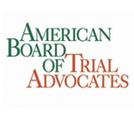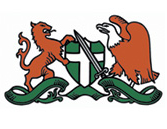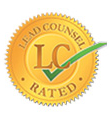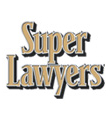It could seem like a concern for the future, but driverless cars are not just science fiction anymore. Driverless cars, also commonly known as “self-driving cars," are here with us and are becoming an everyday part of our lives. Although complete or fully self-driving cars are not here yet, some companies, for example, Tesla, have creatively manufactured vehicles with auto-pilot features.
Sadly, as these cars become increasingly popular and common on our highways, there is an increasing and alarming issue of self-driving car accident cases. While these cars can become a safety boon at any time in the future, they also have the possibility of causing fatal injuries when they fail to operate as expected, leading to crashes or collisions.
When that happens, and you sustain a severe injury, you could qualify for damages. It is best to speak with an experienced attorney as soon as possible to understand your options because self-driving car accidents differ from other road-related accidents in many ways.
A skilled attorney can investigate your accident case and help you navigate this unique car accident claim process to obtain substantial compensatory damages for your losses and injuries.
Potential Liability Areas in a Self-Driving Car Accident Lawsuit
Self-driving or autonomous cars operate using a complex system with cameras, software, and several sensors. Sensors and cameras are fixed strategically on the vehicle to allow it to "see" and navigate different terrains.
Even though many people think self-driving cars could make our roads safer, accidents involving them are still common. Fortunately, as technology advances, laws are also evolving to ensure people injured in self-driving car accidents receive the damages they deserve for their losses.
You could be entitled to compensation if a self-driving car collision caused your injuries or financial losses. However, like any other car accident, you must first identify the at-fault or liable party for the accident.
In a self-driving car accident, any of the following parties could be liable for your injuries and damages sustained as a result of the collision:
I. The Driver or Operator of the Self-Driving Car
Drivers still operate most self-driving vehicles on our roads. Most self-driving cars use autopilot systems, meaning the driver must be ready to take control in an emergency or if a system malfunction arises.
According to Vehicle Code (VC) 38750, self-driving cars must have safety emergency alert systems or programs to alert the driver when a failure or malfunction in the autopilot programs is detected. When that happens, the self-driving car's driver should be ready to take full control, including by doing the following:
- Steering wheel
- Accelerator
- Brakes
If a self-driving car's driver does not take immediate action to control the vehicle in an emergency, he/she could be held responsible for any accidents that will occur due to his/her negligence. Similarly, when the operator regains control of the vehicle and makes an error that results in an accident, he/she could also be held responsible.
The driverless car operator could occasionally disengage the autopilot, in which case he/she would operate the vehicle normally. Other errors that a driver of a self-driving vehicle can make that can result in an accident, aside from failing to take control of the vehicle if the autopilot system fails, include the following:
- Driving while intoxicated — In addition to being a crime, driving while intoxicated, also known as impaired driving, is one of the leading causes of car accidents because it impairs a person's ability to operate a vehicle safely like a sober driver.
- Reckless driving — You commit this offense when you drive or operate a vehicle with disregard for other people's safety or property.
- Road rage — Road rage is the term used to describe when a driver overreacts to another driver's provocation and displays his or her annoyance or anger in a threatening or reckless way.
- Speeding — Driving beyond the posted speed limit in certain areas is also a crime and another cause of road accidents because it affects a driver's ability to gain control of his/her vehicle when a need arises to prevent a foreseeable accident.
- Distracted driving — This is the act of driving while doing other activities that take your attention away from the road, like eating, texting, or kissing.
Even if self-driving vehicles are partially autonomous, operators are legally responsible for paying attention to the road to prevent any foreseeable accidents.
II. Another Driver of a Non-Driverless Vehicle
The driver of a non-driverless car could also be liable for causing the collision that led to your injuries. Every driver or motorist is legally responsible for using reasonable care on the road to prevent foreseeable accidents.
A non-autonomous or non-driverless vehicle driver could be responsible for your damages even if the other car in the collision was on autopilot. That is true if the operator fails to exercise reasonable care while driving. Generally speaking, every driver or motorist has a legal duty to keep an eye on the following when driving:
- Obstacles
- Pedestrians
- other automobiles, including autonomous vehicles
Additionally, each driver is in charge of controlling the direction and speed of their vehicle. Failure to observe a reasonable duty of care while on the road, leading to an accident, could signify negligence.
Traffic violations could also be evidence or a sign of negligence, including speeding, distracted driving, failure to yield, drunk driving, and driving with broken or burned-out brake lights. The attorney representing you will keenly investigate the accident that led to your injuries to determine the exact cause of the collision and seek maximum compensation for your losses.
III. The Driverless Vehicle Company or Manufacturer
A driverless car accident could also be due to failures or malfunctions in the autonomous system. Fortunately, under product liability law, you could be eligible for compensatory damages by proving the vehicle manufacturer was liable for the accident.
Product liability law holds manufacturers accountable for any damages and losses their products cause if they intentionally design, market, or assemble a defective or subpar product. That is true even if the manufacturer was not necessarily negligent in causing the accident or injury. Product liability for self-driving vehicles could include the following:
Manufacturing Defects
According to this law, a product has a manufacturing flaw or defect if any of the following is true:
- The finished product deviates from the intended specifications or design of the creator or manufacturer
- The product differs from other similar units in the same product line
Design Defects
A design defect in your vehicle or the other party's vehicle could be the reason for your accident. A product has a design defect if any of the following is true:
- The product failed to perform or function safely as any ordinary consumer would expect when used in a reasonably foreseeable manner
- The benefits of the design do not outweigh the inherent dangers of that design
Warning Defects or Inadequate Warning About the Defects
If a specific product is faulty, the manufacturer or distributor must give users sufficient notice beforehand and instructions on using it safely to avoid accidents. If you sustained an injury in an accident due to a warning defect, including an inadequate warning about a particular defect in the car, you could be eligible for damages.
IV. The Employer of the Self-Driving Car Operator
The employer of the self-driving car's driver or operator could be responsible for your injuries and monetary losses if the person were driving while performing work-related duties. In this situation, your attorney must prove to the court that you were performing your usual daily duties or work assigned by your employer to qualify for compensatory damages.
V. The Owner of the Self-Driving Car
If you were hurt in a self-driving car accident, the vehicle's legal owner could still be held accountable for your damages even if he/she were not at fault for the collision. For instance, the person who legally owns the vehicle could be responsible for your damages in a self-driving car accident if the following is true:
- He/she lends it to a driver without a license
- He/she lends it while knowing it has mechanical issues or is unsafe
If the operator who injured you had no right or permission to use the self-driving car, its legal owner would not be liable for your damages and other losses resulting from an accident the driver caused.
Determining liability areas in a self-driving car accident requires keen investigation because several parties could be at fault in the incident that led to injuries. An experienced attorney understands this and will take his/her time to investigate your case and interview eyewitnesses to find the at-fault party to sue for your damages resulting from the accident.
You should play your part after a car accident to speed up the investigation process and increase your chances of obtaining maximum compensation. You can play your part after a self-driving accident by:
- Documenting the accident scene by taking pictures of the road signs, current weather, road condition, your injuries, and the extent of your vehicle damage
- Exchanging your contact and insurance details with the driver involved
- Collecting contact numbers of eyewitnesses
- Contacting the police or 911
- Seeking medical assistance
- Contacting an attorney
Potential Compensatory Damages Available in a Self-Driving Car Accident Lawsuit
Compensation in a self-driving car collision depends on whether you can prove liability for the accident. If your attorney can prove with sufficient evidence, including eyewitness testimonies, that any of the above parties are liable for the accident, you will receive adequate compensation for your losses.
Your attorney will help you calculate a fair compensation value for your losses resulting from the accident, including economic and non-economic losses. Here is a brief overview of the two types of compensatory damages available in a self-driving car accident lawsuit:
Economic Damages
Economic damages, as the name implies, cover all financial losses (out-of-pocket expenses) you have incurred or are likely to experience due to the impact of the self-driving car accident. Some of these losses include the following:
1. Medical Expenses
The compensation you will receive if you win your lawsuit against the at-fault party should cover your past and expected future medical expenses you will incur when treating your injuries resulting from the accident. Medical and therapy bill receipts can help prove you deserve the maximum compensation for your medical expenses.
2. Lost Income
An injury resulting from a driverless car collision could require you to take time off work to seek necessary treatment and recuperate. The settlement or compensation value you will receive will depend on how long you have stayed and will stay without working to earn your income.
3. Lost Earning Capacity
It could be challenging to continue working and earning money to support your family and pay your bills if you suffer a serious injury in a self-driving car accident. For instance, when you lose a hand or fingers in a self-driving car accident, it could be challenging to continue working if you are a driver or machine operator.
If that is the case, the value of your compensation will rise in accordance with how much money you were making or receiving as income before the injury.
4. Property Damage
The at-fault party also owes you adequate compensation for the money you spent on vehicle repairs and replacements. The compensation you will receive for property damage should also cover the cost of damage to personal belongings that the self-driving car accident caused.
Non-Economic (Non-Monetary) Damages
In your claim or lawsuit, you could also qualify for non-economic damages, which cover all the intangible losses after an accident, including:
1. Pain and Suffering
Since this loss does not involve a monetary loss, calculating your potential compensation value can be challenging. However, a reliable and experienced attorney can estimate a fair compensation value for this loss.
Some of the evidence your attorney will use to prove you deserve substantial compensation for pain and suffering includes:
- Your social media posts
- Your psychological evaluation reports
- Photos of your face before and after the burning or scarring caused by the accident
- Testimonies from your friends about how the accident has affected your daily life
2. Loss of Life Pleasures
Non-economic damages will not only cover negative feelings you are experiencing or are likely to experience due to the impact of the self-driving car accident but also the lack of them. If you win your lawsuit, you will also receive compensation for losing life's pleasures or the ability to enjoy life.
For instance, due to the chronic pain that you are likely to experience after sustaining a severe injury, playing golf or traveling like you used to before the accident could be challenging.
3. Disfigurement
Disfigurement includes any physical changes you experienced due to the accident's impact, including burns, amputations, deformities, and any visible scarring from surgical treatment.
4. Humiliation and Embarrassment
In a self-driving car accident, non-economic damages also include future humiliation and embarrassment you will probably feel due to your injuries or scars on your face.
In a self-driving car accident lawsuit, the court could also award you punitive damages, also known as exemplary damages, if your attorney can prove the defendant's behavior or actions were:
- Extremely reckless
- Malicious
- Intentional
- Disregarded human life
How to Seek Compensation When a Loved One Dies in a Self-Driving Car Accident
Fortunately, you could be eligible for compensation under wrongful death laws if a loved one perishes in a self-driving car accident that was someone else's fault. However, only close family members or relatives of the deceased qualify to file a wrongful death lawsuit to receive compensatory damages, including (but not limited to):
- Spouses
- Children
- Domestic partners
- Grandchildren
- Grandparents
- Any other person entitled to the ownership of the asset or property of the deceased
If your attorney wins this lawsuit, you will receive compensation for the following losses:
- Funeral costs
- Burial costs
- Loss of affection
- Loss of support
- Loss of financial support
- Loss of companionship
Bottom Line
Self-driving car accidents are complex, but with the legal help of an experienced attorney, you could obtain substantial compensation for your losses. In general, the compensation you will receive in your self-driving car accident lawsuit or claim will depend on the aggressiveness of your attorney and the evidence he/she will provide in court.
An experienced attorney can work with experts, including accident reconstruction experts, to find the party responsible for your losses resulting from the self-driving car accident and file a lawsuit on time. A lawsuit against the person or business responsible for the collision must typically be filed within two (2) years of the accident date.
Find a Reliable Driverless Los Angeles Car Accident Attorney Near Me
Determining and proving fault in a self-driving car accident can be challenging, but that is what our attorneys at Los Angeles Car Accident Attorney do best. We understand what it takes to prepare and build a successful driverless accident claim against the at-fault party to receive the maximum compensatory damages possible for your losses.
Call us at 424-237-3600 to schedule an appointment with our experienced driverless car accident attorneys today.






